Sultan Salahuddin Ayyubi: the liberator of Quds
It's been 837 years since Muslims reclaimed Jerusalem, breaking free from 88 years of Crusader rule. Leading this historic liberation was none other than Sultan Salahuddin Ayyubi. On October 2, 1187, Sultan Yusuf bin Ayyub, better known as Salahuddin (or Saladin in European texts), seized control of Jerusalem, marking a pivotal moment in history. This victory catapulted Salahuddin's name into the annals of global recognition. His reputation is not just for military prowess, but for his outstanding character—marked by traits like generosity, piety, morality, justice, and humanity. Notably, his magnanimity extended even to those who had been hostile towards him and his people, notably the Crusaders.
Sultan Yusuf ibn Ayyub, better known as Salahuddin, was born in 532 A.H. (1137 C.E.) into a Sunni Kurdish military family in Tikrit, a village on the west bank of the Tigris between Mosul and Baghdad. However, due to political turmoil, the Ayyubi family was banished from Tikrit to Mosul on the very day of Salahuddin's birth. Despite initial pessimism about his future, Salahuddin's destiny would prove remarkable.
In Mosul, under the generous patronage of ruler Imad ad-Din Zengi, Salahuddin and his family found refuge. Both Salahuddin and his brother were appointed as commanders, setting the stage for Salahuddin's military career. Later, they moved to Ba’albek, where Salahuddin received education under the guidance of esteemed scholars and honed his skills in horsemanship, politics, and military tactics.
Salahuddin's character further developed in Damascus under Nuruddin, son and successor of Imad ad-Din Zengi, who appointed him head of police. Here, Salahuddin displayed his bravery by purging the city of criminals and ensuring the safety of its inhabitants. Alongside his military prowess, Salahuddin excelled in various fields; he was a jurist, Qur'an reciter, and poet.
Sultan Nur al-din Zengi, who became regent of Aleppo after succeeding his father, ruled most of the Syrian region of the Seljuk Empire from 1146 to 1174. As he determined to unite all the Muslims between two rivers, namely the Euphrates and the Nile, to defeat the Crusaders and regain the supremacy of Jerusalem, Salahuddin emerged as a key figure in this mission. Egypt, with its strategic importance, became a focal point amidst rebellions within the Fatimid Sultanate. Salahuddin's unwavering resolve, balanced intellect, and skilled leadership would later define his legacy as a politician, leader, warrior, and scholar of great dignity and renown.
The Ascension of a Statesman
The journey of empire-building for Sultan Salahuddin Ayyubi commenced with a pivotal military expedition to Egypt in 1169. Tasked by Nur al-Din to aid the Fatimid Caliph Al-Adid against the uprising led by Shawir as-Sa’di, Salahuddin, alongside his uncle Shirkuh, embarked on a mission fraught with intrigue and betrayal. Despite initial success against Shawir, the sudden alliance between Shawir and King Almaric of Jerusalem forced their hand, leading to Shawir's demise and the annexation of territories like Alexandria and Fustat into the Syrian kingdom. Despite these challenges, Salahuddin remained steadfast in his loyalty to Nur al-Din, even as he ascended to the role of vizier following the death of his uncle.
In the wake of Nur al-Din's passing in 1173, Salahuddin wasted no time in consolidating his power, establishing the sultanate of Ayyubids. Despite his burgeoning strength and influence, Salahuddin remained true to his allegiance to Nur al-Din, ensuring the continuation of the Friday sermon in his name. The Abbasid Caliph, recognizing Salahuddin's prowess, bestowed numerous honours and gifts upon him, cementing his status as a formidable leader.
Following a series of victories, including the conquest of Damascus in 1174 and Mosul shortly after, Salahuddin's dominion expanded rapidly. By 1175, he was officially proclaimed as the "Sultan of Egypt and Syria" by the Abbasid Caliph Al-Mustadi’. Establishing Cairo as his capital initially, Salahuddin later shifted his seat of power to Damascus. His realm spanned Egypt, Syria, Upper Mesopotamia, the Arabian Peninsula, and parts of North Africa, earning him the illustrious title of "the liberator of Jerusalem."
Salahuddin's remarkable victory in reclaiming Jerusalem on October 2, 1187, was preceded by the decisive battle of Hattin on July 4, 1187. Fought in response to the provocations of Raynald de Chatillon, who flagrantly attacked Muslim caravans and insulted the Prophet Muhammad, the battle culminated in Salahuddin personally delivering justice to Raynald. This momentous triumph further solidified Salahuddin's reputation as a valiant defender of his people and a beacon of hope for the Muslim world.
Capable leader and champion of Human rights.
In the realm of leadership, Salahuddin Ayyubi stands as a paragon of virtue, embodying the qualities of courage, steadfastness, and compassion. His leadership philosophy, deeply rooted in his piety and devotion to the Almighty, exemplifies the essence of a true leader—merciful, kind-hearted, and a well-wisher for all.
Salahuddin Ayyubi's unwavering piety and devotion to the Almighty were evident in his steadfast observance of religious duties. He diligently performed the five obligatory prayers, along with additional supererogatory prayers, without delay and in congregation. Ibn Shaddad, a companion to Sultan and Al-Qadi al-Fadhil, recounted in his book "al-Nawadir al-Sultaniyya wa'l-Mahasin al-Yusufiyya" witnessing Salahuddin praying on his feet even during his final illness. Remarkably, Salahuddin never missed a prayer except during his last three days.
Despite his esteemed position as the custodian of two sacred mosques, Salahuddin remained humble and grounded. His commitment to charity, exemplified by his modest legacy of 47 dirhams and one dinar, reflected his belief that material wealth held no sway in the eyes of true righteousness. Despite harbouring a deep desire to perform Hajj, Salahuddin could not do so due to financial constraints. Yet, he remained undeterred, expressing his profound understanding of worldly possessions with the saying, "Money and dust are equal in my sight."
Salahuddin Ayyubi's leadership, characterised by justice, understanding, forgiveness, patience, and courage, draws parallels to the noble qualities exemplified by the Prophet Muhammad. His actions mirrored the Prophet's compassionate and equitable approach to governance. An anecdote Ibn Shaddad recounts illustrates Salahuddin's resemblance to the Prophet Muhammad. When Ibn Shaddad's mule splattered mud on Salahuddin's clothes due to rain, Salahuddin responded not with anger but with a serene smile, mirroring the Prophet's gentle and forgiving demeanour.
Ayyubi diligently listened to grievances on Mondays and Thursdays and fostered an environment of accessibility and fairness. His commitment to peaceful coexistence within Jerusalem after its conquest echoed the actions of Umar ibn Khattab, underscoring his dedication to harmonious relations among diverse communities.
Salahuddin's chivalrous and magnanimous treatment of both his people and his enemies exemplified his commitment to human rights and dignity. His leadership legacy transcends time, serving as a beacon of inspiration for modern leaders striving to emulate the noble qualities of compassion, fairness, and integrity.
Salahuddin Ayyubi's magnanimity and chivalry are etched in history through his remarkable gestures of pardon and compassion, particularly towards his adversaries. A notable instance is his visit to his mortal enemy, King Richard the Lion-Hearted, when the latter fell ill. Salahuddin's gesture of sending fruits and inquiring about Richard's health left the Crusaders astonished, a testament to his noble character.
Historians note that Salahuddin never exploited his enemies' weaknesses to coerce them into embracing Islam. Instead, his humane approach and respect for their beliefs led to a significant number of Crusaders embracing Islam, as Arnold observed in his book "Ad-Da’wah ila Al-Islam."
Salahuddin's mercy was particularly evident during the conquest of Jerusalem, where he chose to ransom prisoners instead of enslaving them, contrary to the prevailing practice of the time. His treatment of women was also highly commendable, reflecting his adherence to Islamic principles of decency and respect.
Stanely Pool, in his book "The Life of Saladin and the Fall of the Kingdom of Jerusalem," acknowledged Salahuddin's exemplary morals and righteousness, remarking that the Muslim sultan taught Christian clerics the true meaning of noble conduct.
Even in instances where adversaries sought to exploit his generosity, Salahuddin remained steadfast in his principles. When a patriarch attempted to leave with treasures without paying ransoms for poor Crusaders, Salahuddin chose integrity over material gain, stating, "I prefer to take 10 dinars than to betray him."
His Deminse
The passing of Salahuddin Ayyubi marked a somber day for Jerusalem, as the beloved ruler bid farewell to this world at the age of 57, following the Fajr prayer of 27 Safar 589 A.H. (1193 C.E.). His departure left Muslims and Jerusalem engulfed in sorrow.
Witnesses, such as Al-Qadi ibn Shaddad, vividly depict the heart-wrenching scene at the Citadel, where people mourned the loss of their esteemed leader. Tears flowed freely as cries of grief echoed through the air, painting a scene of profound sadness and lamentation. The palpable sense of loss was overwhelming, with many expressing their willingness to sacrifice themselves for their departed Sultan.
Salahuddin's physical remains were initially laid to rest in the Citadel of Damascus. Three years later, his son Malik Fadl arranged for his transfer to a tomb adjacent to the 'al-Umawi Mosque', where his legacy would be honoured and remembered for generations to come.
Despite his illustrious reign and significant contributions to the Muslim world, Salahuddin's earthly possessions were modest. His estate consisted of 47 dirhams and one dinar, devoid of any land, garden, farm, or other properties. Yet, his wealth lay not in material possessions but in the hearts of those he inspired and the indelible mark he left on history.
Conclusion
In conclusion, Sultan Salahuddin Ayyubi's legacy transcends time and borders, earning him acclaim as a champion of human rights and a visionary leader of his era. As noted by Naima, an esteemed Ottoman administrator, Salahuddin's unparalleled service to religion and state distinguished him as one of history's most exceptional monarchs.
Salahuddin's humanitarian endeavours and remarkable leadership endeared him to both Muslim and Christian communities alike. His actions defied simplistic narratives of religious conflict, as he embodied values of compassion, tolerance, and respect for all faiths.
Despite being a revered figure in Western stories for his noble deeds, Salahuddin's legacy extends far beyond mere folklore. His profound impact on history serves as a beacon of hope for those oppressed and marginalised, inspiring prayers for the emergence of another leader of his calibre to address contemporary challenges.
As we reflect on Salahuddin's enduring legacy, let us echo the prayer of contemplative Muslims to Allah, beseeching for mercy and guidance in the face of ongoing injustices and hardships. May Salahuddin's example continue to inspire compassion, courage, and resilience in the quest for justice and peace. Ameen.
References:
1- ‘Abdullah Nasih ‘Ulwan : ‘Salah ad-Din Al-Ayyubi(saladin) Hero of the battle of Hattin and Liberator of Jerusalem from Crusaders’; translated by Khalifa Ezzat Abu Zeid, Dar Al-Salam Cairo (2004).
2- Jehan Alfarra: ‘Remembering Saladin’s Liberation OF Jerusalem’; Middle East Monitor, October 2, 2020. https://www.middleeastmonitor.com/20201002-remembering-saladins-liberation-of-jerusalem.
3- Güncelleme Tarihi: ‘Salahuddin Ayyubi, The Great Warrior Of Islam’; world bulletin, 06 July 2018. https://www.worldbulletin.net/islamic-world/salahuddin-ayyubi-the-great-warrior-of-islam-h178087.html
4- Abdullah Samadani : ‘Sultan Salahuddin Ayyubi : The great champion of human rights’; Muslim Mirror, December 10, 2020 https://muslimmirror.com/eng/sultan-salahuddin-ayyubi-the-great-champion-of-human-rights.
About the author: Md Yousuf Kamal is Degree Second Year student at Darul Huda Islamic University, Malappuram, Kerala. He hails from Bihar. His interests lie in the termite of history.
Disclaimer
The views expressed in this article are the author’s own and do not necessarily mirror Islamonweb’s editorial stance.

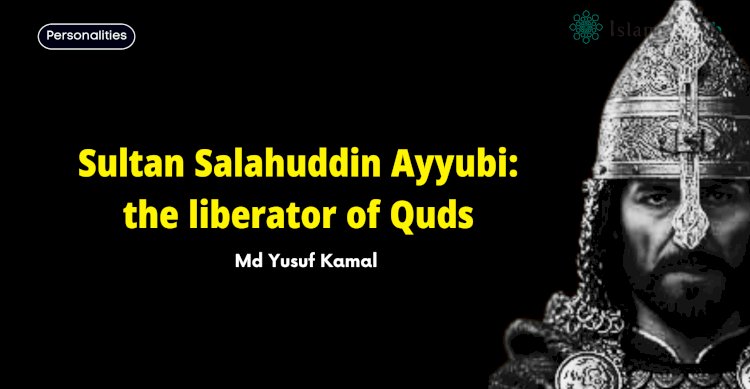


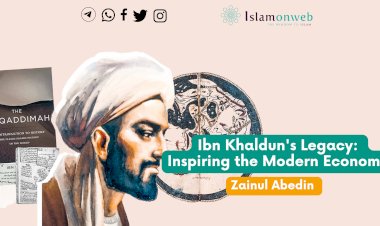
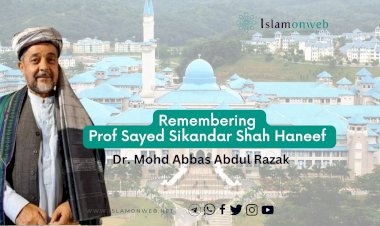

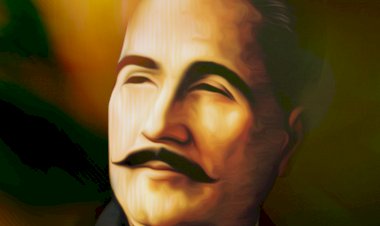
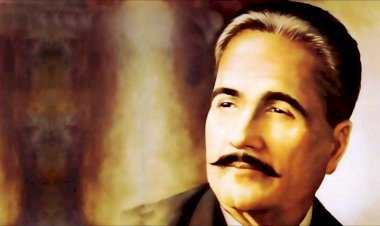
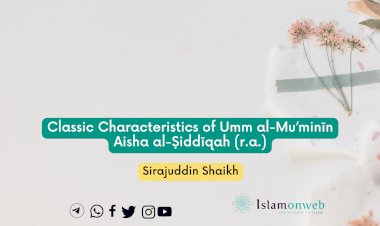














Leave A Comment